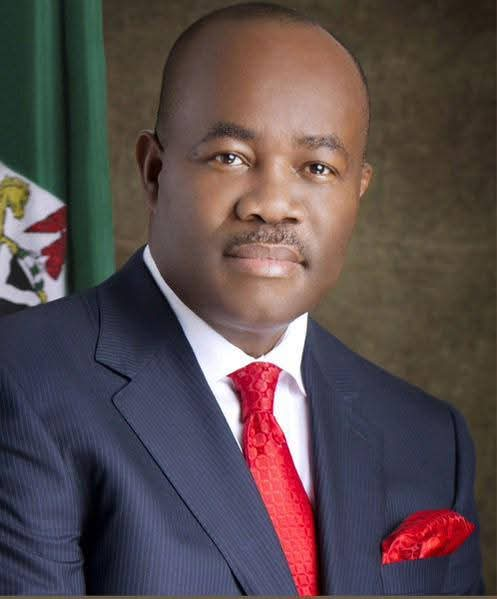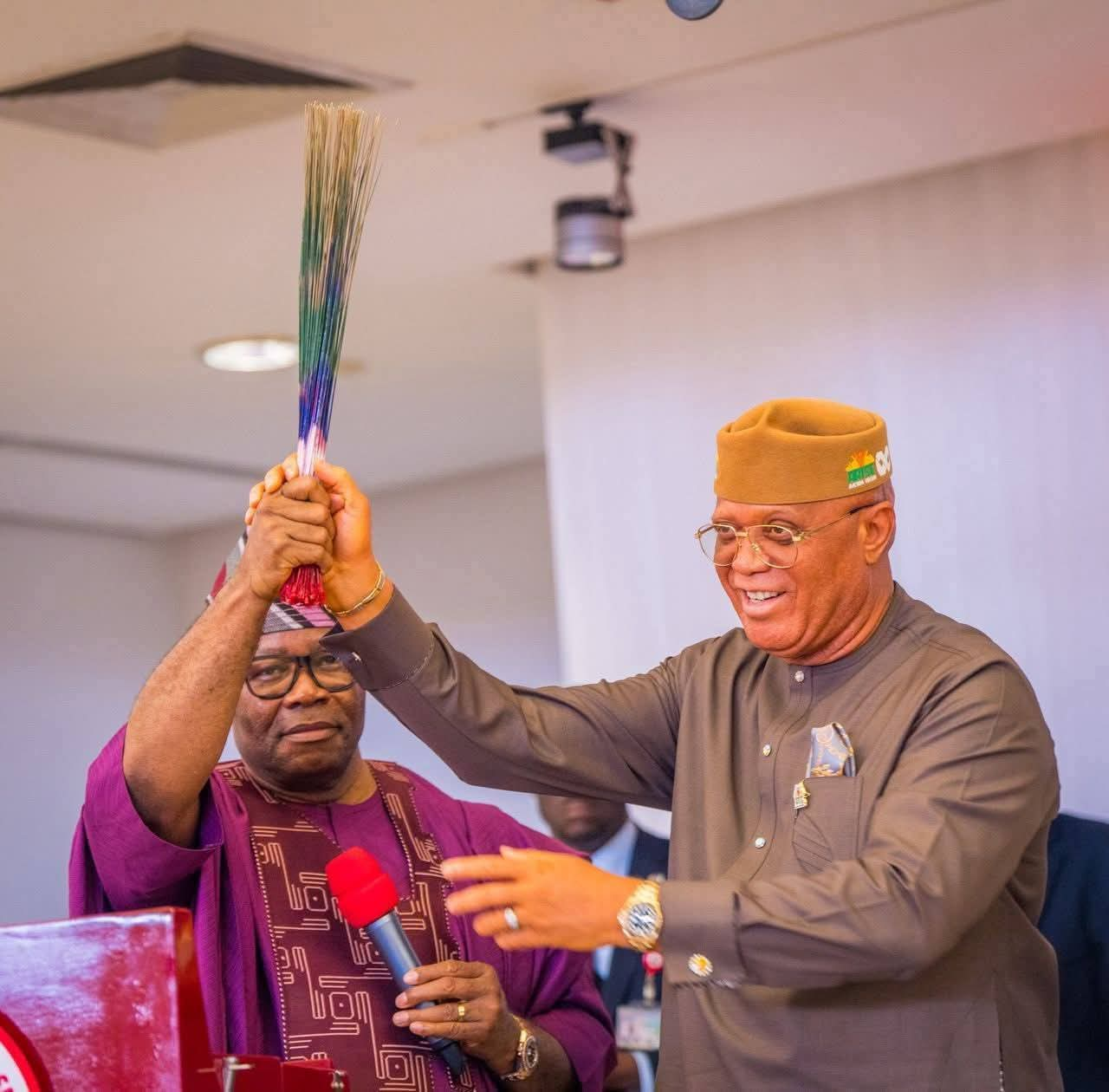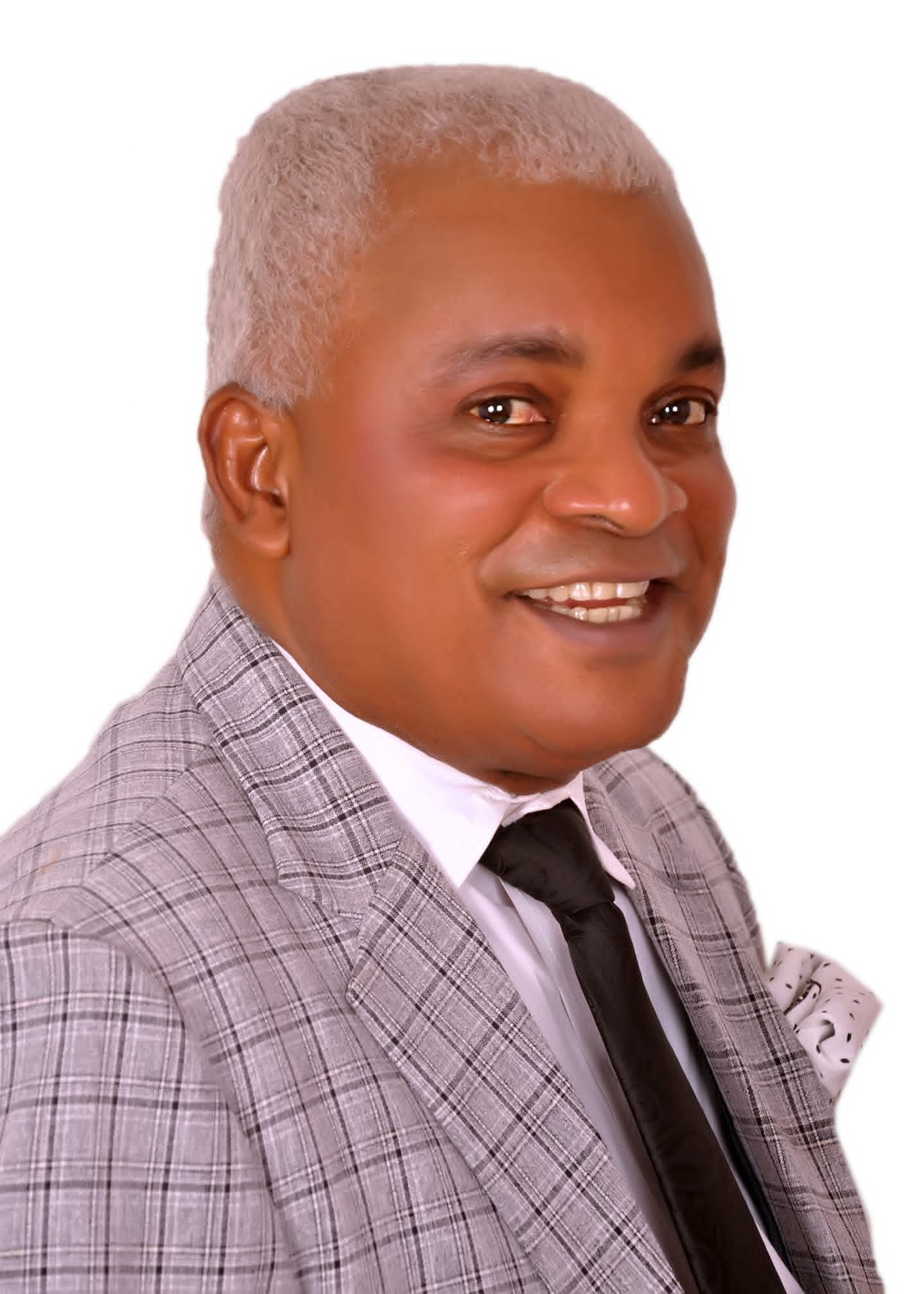By Ken Harries Esq
In the majestic halls of the Palais des Nations in Geneva, where the world’s parliamentary leaders gathered to wrestle with crises that threaten the very fabric of humanity, Nigeria’s Senate President, Godswill Akpabio, strode onto the podium with the composure of a man forged in storms and determined to chart a new course. At the Sixth World Conference of Speakers of Parliaments, convened by the Inter-Parliamentary Union (IPU) in partnership with the United Nations from 29 to 31 July 2025, Senator Akpabio delivered an address entitled “Courage to Legislate, Will to Lead.”
To be clear, this was no ordinary speech. It was a manifesto of resilience, a call to parliaments to transform turbulence into resolve, and a clear signal that Nigeria intends to play a more assertive role in shaping global governance. Akpabio’s words reverberated far beyond the stately walls of the United Nations complex, echoing across continents as a clarion call for parliaments to rise as architects of peace, justice, and shared prosperity.
For Nigeria, it was more than just another address by the number three citizen in the pecking order of the country’s political leadership. It was a declaration of resilience, a proclamation of leadership, and a bold announcement that Africa’s largest democracy is ready to help shape the global agenda. With his trademark blend of eloquence, Nigerian pragmatism, and the warmth of a village elder, Senate President Akpabio cemented Nigeria’s place as a beacon of legislative courage in an age of uncertainty.
Legislating in the Furnace: Nigeria’s case for courage:
Akpabio began with imagery that captured both Nigeria’s trials and its triumphs. “I come from a nation that has endured fire and risen from ashes,” he told the gathering, his voice imbued with the conviction of lived experience. He spoke of a people who “find clarity in confusion and keep sailing through storms and rough weather,” words that drew knowing nods from delegations representing nations equally buffeted by conflict, climate change, and economic instability.
Far from a lament, it was a bold framing of adversity as opportunity. “We are not defined by what we face, but by how we rise,” Akpabio declared, striking a chord with an audience searching for hope in an age of turmoil. He then laid out Nigeria’s legislative record as proof that courage is more than rhetoric.
The Control of Small Arms and Light Weapons Act and the Terrorism Prevention and Prohibition Act were highlighted as bulwarks against insecurity. These were not isolated measures but, as Senator Akpabio argued, the very foundation of development. Terrorists, he noted, exploit poverty and displacement. To address this, Nigeria’s Senate has paired security legislation with social reforms such as the Out-of-School Children Education Act, designed to ensure the country’s vast youth population, numbering over 130 million, becomes an asset rather than a liability.
His refrain, “We legislate in the storm, reform in the furnace, and lead with courage,” became the heartbeat of his address.
Beyond security, the Senate President championed innovation and inclusion. The 10-Year National Digital Strategy and the Start-Up Act are unlocking what he called “potential long caged by poverty,” offering expanded credit, digital training, and opportunities to a generation that might otherwise be left behind. “Our youth are not a liability but a lifeline,” he proclaimed, drawing applause from delegations across Africa and Asia.
Inclusion, he stressed, is no longer negotiable. The Not Too Young To Run Act has flung open Nigeria’s political space to a new generation, while proposed gender quotas promise to move women and persons with disabilities from the periphery to the centre of decision-making. “Inclusion, not exclusion, must be our standard,” Akpabio insisted, aligning Nigeria with the IPU’s global mission to close the democracy gap. At a conference where the 15th Summit of Women Speakers of Parliament had just concluded, this commitment carried particular resonance.
A Call to Action: Reimagining Multilateralism for Global Progress:
If the first half of Akpabio’s speech celebrated Nigeria’s domestic resilience, the second half challenged the global order to act with equal courage.
With the conference theme, “A World in Turmoil: Multilateralism for Peace, Justice and Prosperity for All,” setting the tone, he cut through the familiar fog of diplomatic platitudes with startling clarity. “Multilateralism must not become a rhetoric. It must rise as a movement of resolve,” he said, his words sharp as a blade.
Akpabio urged parliaments to step beyond ceremonial roles and become “peace architects” who “command, not just convene.” He laid out three pillars for reimagining multilateralism.
First, solutions must be locally rooted yet globally relevant. Nigeria’s regional security summits, which bring together governors, traditional rulers, and security agencies, were cited as a model for addressing arms trafficking, banditry, and separatist agitation through bottom-up intelligence rather than distant policy papers.
Second, the Sustainable Development Goals must be treated as binding legislative contracts. Nigeria’s efforts, from tax reforms and cash transfers for the poorest households to education loans and vocational training, were presented not as domestic footnotes but as global commitments honoured in practice.
Third, Akpabio evoked what he called the tapestry principle: “When one corner of humanity is torn by conflict or injustice, the whole fabric is weakened.”
It was a poetic flourish that transcended borders, reminding the assembly that climate change, arms flows, and youth unemployment cannot be solved by nations acting in isolation. His call for legislators to “bind our futures not only in treaties, but in tenacity” drew rousing applause. It was a challenge to move beyond drafting resolutions that gather dust and instead to become paragons of purpose in a world starved of decisive leadership.
Showcasing Nigeria’s legislative achievements on the global stage:
Beneath the soaring rhetoric lay a strategic subtext. Nigeria was not content to participate; it was ready to lead. By showcasing legislative achievements in the face of terrorism, poverty, and economic volatility, Akpabio positioned Nigeria as a thought leader for the Global South. His appeal for “justice for all” carried a pointed critique of unequal resource flows and arms exports that fuel conflicts in developing nations, a diplomatic challenge to Western powers delivered with grace rather than rancour.
The symbolism of the moment was unmistakable. Nigeria had returned to the IPU Executive Committee in 2023 after nearly six decades, and Akpabio now serves among the twenty members of the Preparatory Committee shaping its future. Observers rightly see his well-received Geneva outing as a résumé enhancement for even greater international roles. As one delegate remarked, “Akpabio did not just speak for Nigeria. He spoke for every nation struggling to turn chaos into progress.”
His Nigerian ethos, resilience laced with charm, gave the speech a unique flavour. His greeting “from the Senate and the resilient people of Nigeria” was less a protocol and more a proud declaration of a nation unbowed even when troubles abound. His metaphors of rising from “ashes” and sailing through “rough weather” evoked the spirit of the Lagos trader or Kano farmer: adaptable, unyielding, and never without hope. That relatability ensured his words resonated not only with Geneva’s polished delegates but also with citizens in Maiduguri, Port Harcourt, and Onitsha, who saw in him a reflection of their own struggle and determination.
As the conference closed, one question lingered: Would the world’s parliaments heed his call or remain, as he warned, “scribes of the status quo”?
For Nigeria, Senator Akpabio’s Geneva triumph is more than symbolic. It is a milestone in the country’s ascent as a voice of consequence in global governance. For the Senate President himself, it was a legacy moment, cementing his stature as both a parliamentary diplomat and a statesman of continental consequence.
And as he reminded the world with unwavering conviction: “We legislate in the storm, reform in the furnace, and lead with courage.”
Ken Harries Esq is a development Communication Specialist.



